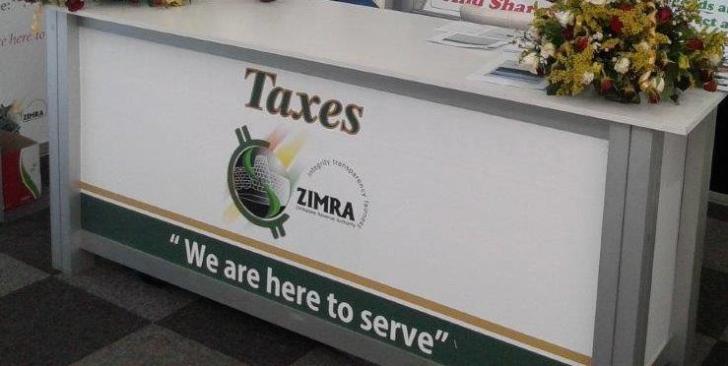News / National
Zimbabwe turns to sugar, fast foods, and booze for revenue
28 May 2025 at 10:02hrs |
0 Views

Zimbabwe's Treasury is relying heavily on taxes imposed on sugar, fast food, and alcoholic beverages to recoup hundreds of millions of dollars lost following sharp cuts in official development assistance (ODA), it has emerged.
In the 2025 National Budget, Treasury had anticipated receiving US$800 million in ODA to meet the country's rising financial needs. However, with the inauguration of U.S. President Donald Trump on January 20, Washington slashed foreign aid in an effort to manage America's ballooning debt, which has surpassed US$35 trillion. As a result, Zimbabwe lost approximately US$327 million in foreign aid, a significant blow considering the country has averaged US$348 million annually in aid from the U.S. over the past five years. This year, Zimbabwe is projected to receive just US$21 million from the United States, according to the American Government's Foreign Assistance website.
Speaking at the African Development Bank's (AfDB) annual meetings during a panel on Zimbabwe's Arrears Clearance and Debt Resolution Process, Finance, Economic Development, and Investment Promotion Minister Mthuli Ncube noted the challenges faced in 2024, including the worst drought in 40 years. Despite these hardships, Ncube expressed optimism about the country's economic prospects, stating that growth is projected to rebound to 6 percent in 2025, driven by agriculture recovery, manufacturing, and investments in mining.
He also highlighted fiscal improvements, noting that the revenue-to-GDP ratio rose to 17 percent in 2024 due to stronger tax collection and efficiency measures. This fiscal consolidation has been supported by a series of new taxes introduced this year, including a 1 percent tax on fast foods, a sugar tax of US$0.001 per gram of sugar in beverages, and an excise duty increase on alcoholic beverages from US$0.25 to US$0.30 per litre. According to Minister Ncube, the government acted swiftly to offset the loss of ODA, which ranged between US$300 million and US$500 million, by tapping domestic sources such as sugar, fast foods, and alcohol taxes.
Revenue collection for the first quarter of 2025 exceeded targets by 8 percent, reflecting improved compliance and effective mobilisation strategies. The Minister also provided key macroeconomic indicators, noting that inflation averaged 2.9 percent month-on-month in Zimbabwean dollars and 3 percent in U.S. dollars from January to April. Year-on-year inflation stood at 85.7 percent (ZiG) and 14.4 percent (US$) in April 2025, with expectations that monthly inflation will stabilize below 1.5 percent, and year-end inflation forecast at 25.6 percent.
Regarding currency reforms, Ncube praised the "willing-buyer willing-seller" system for improving forex market efficiency and narrowing the gap with the parallel market, with the average first-quarter exchange rate at US$1 to ZiG26.42. On the trade front, the country posted a US$500 million current account surplus in 2024, representing 4 percent of GDP. Treasury forecasts a surplus of US$277.4 million for 2025, buoyed by diaspora remittances and a narrowing trade deficit.
Minister Ncube's remarks underscore Zimbabwe's strategic shift toward domestic revenue mobilisation as it confronts the twin challenges of aid reduction and economic recovery.
In the 2025 National Budget, Treasury had anticipated receiving US$800 million in ODA to meet the country's rising financial needs. However, with the inauguration of U.S. President Donald Trump on January 20, Washington slashed foreign aid in an effort to manage America's ballooning debt, which has surpassed US$35 trillion. As a result, Zimbabwe lost approximately US$327 million in foreign aid, a significant blow considering the country has averaged US$348 million annually in aid from the U.S. over the past five years. This year, Zimbabwe is projected to receive just US$21 million from the United States, according to the American Government's Foreign Assistance website.
Speaking at the African Development Bank's (AfDB) annual meetings during a panel on Zimbabwe's Arrears Clearance and Debt Resolution Process, Finance, Economic Development, and Investment Promotion Minister Mthuli Ncube noted the challenges faced in 2024, including the worst drought in 40 years. Despite these hardships, Ncube expressed optimism about the country's economic prospects, stating that growth is projected to rebound to 6 percent in 2025, driven by agriculture recovery, manufacturing, and investments in mining.
Revenue collection for the first quarter of 2025 exceeded targets by 8 percent, reflecting improved compliance and effective mobilisation strategies. The Minister also provided key macroeconomic indicators, noting that inflation averaged 2.9 percent month-on-month in Zimbabwean dollars and 3 percent in U.S. dollars from January to April. Year-on-year inflation stood at 85.7 percent (ZiG) and 14.4 percent (US$) in April 2025, with expectations that monthly inflation will stabilize below 1.5 percent, and year-end inflation forecast at 25.6 percent.
Regarding currency reforms, Ncube praised the "willing-buyer willing-seller" system for improving forex market efficiency and narrowing the gap with the parallel market, with the average first-quarter exchange rate at US$1 to ZiG26.42. On the trade front, the country posted a US$500 million current account surplus in 2024, representing 4 percent of GDP. Treasury forecasts a surplus of US$277.4 million for 2025, buoyed by diaspora remittances and a narrowing trade deficit.
Minister Ncube's remarks underscore Zimbabwe's strategic shift toward domestic revenue mobilisation as it confronts the twin challenges of aid reduction and economic recovery.
Source - online
Join the discussion
Loading comments…
































